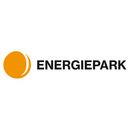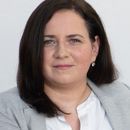
Integration of RES into the Energy System
Empowering Renewable Futures: Navigating the Energy Revolution
Embark on an enlightening journey into the heart of renewable energy! Explore the fundamentals of electricity markets, CO2 emissions trading, and grid integration strategies. Master the future of energy with insights into Smart Grids, market integration of renewables, and the direct marketing of green electricity. Join us to revolutionize the energy landscape and build a sustainable tomorrow.
Download the brochure:
What you'll learn
✓ Comprehensive Insight: Gain advanced understanding of renewable energy technologies, including integration strategies and storage options.
✓ Application-Oriented: Aquire specialized knowledge and experience it in day-to-day industry applications.
✓ Technology Competence: Understand the influence of energy technologies on power grids and utilize tools for effective analysis in renewable energy projects.
✓ Networking: Build connections with experienced professionals and fellow students to expand your professional network.
✓ Flexible: Benefit from modular learning tailored to diverse professional backgrounds.
Didactics: Theoretical content, case studies, reflections and discussions, excursions
Language: Available in English
Venue: TU Wien
Participation Fee: The participation fee is EUR 4,090 (VAT-free, excl. travel and accommodation expenses)
Certificate: Certificate of participation from TU Wien and possibility of crediting to the MSc (CE) Renewable Energy Systems program. The workload of the program equals 14 ECTS.
Requirement for participation: Please register via our online form, opens an external URL in a new window. A short individual consultation with the program manager is also a necessity for participation.
- To understand functions, opportunities, and limitations of renewable energy technologies.
- To describe strategies for optimal integration of renewables into the energy system.
- To analyze the influence of energy technologies on power grids critically.
- To implement renewable energy projects independently and creatively.
1 block, 8 days total, full day (classes from 9.00 a.m. - 5.00 p.m.)
- September 11 – 14, 2025 – Thursday - Sunday
-
October 09 - 12, 2025 - Thursday - Sunday (Excursions)
This program is tailored for working professionals seeking to enhance their expertise in sustainable energy. We welcome individuals from diverse backgrounds, including engineering, environmental science, business, policy, and beyond. Whether you're a seasoned industry practitioner or a career changer, this flexible program equips you with the knowledge and skills to excel in the rapidly evolving field of renewable energy.
![[Translate to English:] Management Technology](/fileadmin/_processed_/4/a/csm_shutterstock_696275392_29fcf4b970.jpg)
![[Translate to English:] Management Essentials](/fileadmin/_processed_/9/1/csm_shutterstock_599921468_5f86e091c7.jpg)
Faculty
Our lecturers have a scientific background with many years of relevant training experience. They combine theoretical input with a strong focus on practical implementation.
Architect Georg Wolfgang Reinberg, (born in Vienna in 1950), is based in Vienna. He studied Architecture at Vienna Technical University and Syracuse University (NY, USA) and received grants from Schütte and Fulbright.
From 1983 till 1986 he was assistant of Professor Anton Schweighofer at the Vienna Technical University. Since 1980 he is working as an independent Architect and runs his own “Ziviltechnikerbüro” since 1985. From 1983 to1990 he was member of “Arge Architekten Reinberg, Treberspurg, Raith”. He is managing his office together with his wife Martha Enriquez-Reinberg, lic. Arch. 2006 the name of his firm was changed into "Architekturbüro Reinberg ZT GmbH". This office which recently has 8 stuff members, is working in design as well as detailed planning and construction management. Architect Reinberg has realized more than 100 ecologically oriented projects.
In connection with those projects Reinberg has engaged in various research activities.
He won numerous competitions, honours and prizes.
He has taught at Solarbauschule Vorarlberg (1994 – 95). He is lecturing at the Vienna Technical University (since 1995); is visiting Professor at the Danube University in Krems (Solar Architecture, since 1997) and teaches at the University of Applied Sciences in Vienna (FH Campus, since 2013). He is also teaching and giving lectures internationally.
Georg W. Reinberg has published - among others - the following books: “Ecology and Architecture: Architecture by Georg W. Reinberg”, 1998; “Georg W. Reinberg: Solar Architecture”, 2005; “Ecological Architecture-Design, Planning, Realization”, 2008.
Marcus Hummel joined the EEG in 2009. He holds a degree in process engineering (Energy and Environmental Engineering) at the TU Wien. In his diploma thesis he developed a "Model for scenario analyses about the technical possibilities of renewable energy systems" working as a research assistant at the Institute of Industrial Ecology in St.Pölten. One year he studied at the University of Granada in Spain.
His research interests include technical and environmental as well as economical and political aspects of energy systems. Focus lies on the understanding of possible future developments of energy systems using techno-economic modelling approaches. The aim is to help develop sound political measures for the transition to sustainable energy systems in a low-carbon society.
Special working focus lies on industrial energy systems as well as the space heating and hot water in buildings market. Due to the existing overlapping concerning buildings as well as processes his work also covers the service sector. His research topics cover both energy efficiency improvement and renewable energy integration.
Marcus Hummel works on national and international research projects and takes care of project acquisition and coordination.
Since 2010 he takes care of the "Energiegespräche" (Energy Talks) at the Vienna Museum of Technology, a quarterly event for discussing recent energy related topics in public.
Marcus Hummel and Raphael Bointner together lead the Student Chapter of the Austrian Association for Energy Economics (AAEE). The aim is to connect PhD-Students in the field of Energy Economics on the national as well as international level and to foster scientific discussion in the field. Highlight is the organisation of an international PhD-Day once a year at EEG.
Dr. Werner Friedl is working for AIT Austrian Institute of Technology (since 2015) where he is heading and coordinating the research field "Integrated Energy Systems". In parallel he is member of the Board of Directors of EUREC (T he Association of European Renewable Energy Research Centres) and Operating Agent of ISGAN (The International Smart Grid Action Network). Furthermore, he is lecturer at Universities and give courses in Smart Grids/Internet of Energy, Energy Markets and Energy Law. After studies in Electrical Engineering with the focus on Energy Technologies, he worked at the Institute of Electrical Power Systems (TU Graz) in the fields of grid planning, safety and protection, decentralised generation and power quality and did his doctorate in grid planning and grid development. He achieved his expertise in energy policy and electricity market design during his time at Energie Control Austria (from 2008 2015). His work at the Austrian regulatory authority included innovation, smart grids, quality of supply, balancing energy and energy control. From 2011 2015 he headed the working group "Electricity Quality of Supply and Smart Grids" at the Council of European Energy Regulators (CEER) and coordinated Smart Grids activities with in CEER.
Roger Hackstock graduated as electrotechnical engineer at the TU Wien. He is an expert in technology deployment, specialised on a systematic approach.
For many years he gained knowledge working in the Ministry of Science and Research, the Austrian Academy of Science, the Austrian Energy Agency and the Climate and Energy Fund.
In 2002 he became managing director of the solar industry association Austria Solar for twelve years, where he attained professional insights on market mechanisms of renewable energy. The first solar powered annual report , opens an external URL in a new window, opens an external URL in a new window– content was only visible in full sunlight – he launched 2012 attracted worldwide attention of art directors.
In his book “Energiewende – Die Revolution hat schon begonnen, opens an external URL in a new window, opens an external URL in a new window” he focussed on future energy solutions from a system perspective. He is an expert on implementation of integrated renewable energy solutions that are profitable as well as socially accepted.
Carlo Obersteiner is working at the energy economics department of Wien Energie since 2010. Formerly he worked as a research assistant at the Energy Economics Group, TU Wien. He holds a PhD in energy economics and a master degree in power engineering, both from TU Wien.
His research focused on economic aspects of market and grid integration of renewable energies. For his PhD he investigated parameters affecting the market value of wind power from a generator's perspective. At Wien Energie he deals with long-term and strategic issues.
The above faculty represent a selection of our lecturers.
The First Step Toward Your Master’s Degree
This compact program is part of the MSc Renewable Energy Systems and can be credited toward the master’s program at a later stage.

